Epidemiology and Reportable Illnesses

If you suspect an illness that originated from a business or facility that the health department inspects, call 770.339.4BUG (770.339.4284) right away.
What are reportable illnesses?
In Georgia, local and state public health collect and analyze data on more than 70 diseases and conditions to quickly identify situations that may require public health intervention and follow-up in an effort to prevent disease outbreaks, epidemics, and pandemics.
In cases involving food- or water-borne illnesses, epidemiology staff notifies environmental health staff so they can conduct additional location-based inspections and address identified problems.
What happens after the health department is alerted that a reportable illness has occurred in its health district?
After a report is received from a private citizen or healthcare provider, health department epidemiologists gather information to help determine the source of the disease, the type of bacteria or virus that caused the illness, and the risk of others becoming ill. In addition, the health department will provide disease prevention education and recommends or, when necessary, implements infection control practices to limit disease spread.
What happens with the data that is collected?
The disease data we collect is de-identified and shared with local, state, and federal agencies to help public health detect changing trends or patterns in disease occurrence and identify situations that may require special public health assistance. In addition, collection of disease data allows public health to assess and improve methods used to control and prevent diseases that affect people.
data resources
Live Healthy Gwinnett County Health Dashboard
Georgia’s Online Analytical Statistical Information System (OASIS)
Public Health Information Portal (PHIP) – Use PHIP to request information not available on OASIS through the Georgia Department of Public Health.
Epidemiology data requests
The district epidemiology program processes all public health data requests in the order they are received, although preference will be given to internal programs and emergent issues. Once a request is submitted, you will receive a response via email within 2 business days of submission to provide an approximate timeline for delivery of data/information requested. Time to completion of the request will depend on the complexity of the request, the priority of the item, and the current workload of staff. If you have any questions regarding your data request or about the process please email the district epidemiologist working on your request.
NOTE: We do not release individual-level data. Data may be limited to protect confidentiality. Not all requests can be filled due to limitations on the data available.




